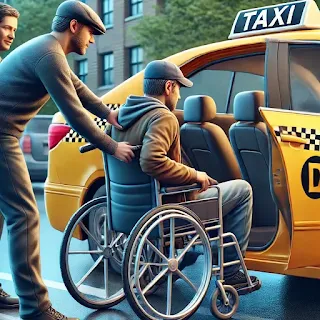Analysis of Passengers Willingness to Travel with Individuals with Disabilities
1. Passenger Willingness to Accommodate Individuals with Disabilities:
Passengers, in general, tend to be willing to accommodate individuals with disabilities, especially when there is a structured system in place that promotes inclusivity and ease of use for all parties involved. Factors that can influence the willingness of passengers to take on individuals with disabilities include:
- Social Responsibility: Many passengers view helping individuals with disabilities as a social responsibility. This sense of empathy and desire to support others can make passengers more likely to agree to shared rides with individuals who have disabilities.
- Enhanced Accessibility Features: If the platform offers features that make it easier for passengers with disabilities to join rides (e.g., accessible vehicles, easy entry/exit points), it can make the idea of shared rides more appealing and reduce any perceived inconvenience.
- Pre-ride Communication: Allowing passengers to communicate before the ride starts can help set expectations and address any concerns, such as special assistance needs or seating arrangements. This can create a more positive attitude towards sharing a ride with someone with a disability.
2. The Willingness of Individuals with Disabilities to Share Rides:
Conclusion
Both groups—general passengers and individuals with disabilities—are likely to be open to shared rides if the platform is designed with inclusivity in mind. Offering incentives, ensuring accessibility, facilitating communication, and building a supportive community can significantly enhance the willingness of all passengers to participate in shared rides.
By fostering an environment of understanding and support, Smart Dating in a Taxi can effectively bridge the gap and create a ride-sharing experience that is both inclusive and rewarding for everyone involved.









Comments
Post a Comment